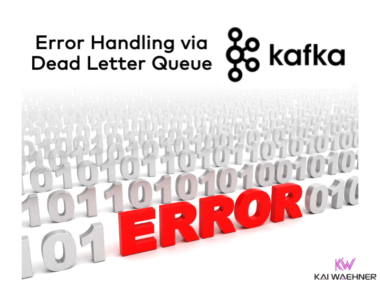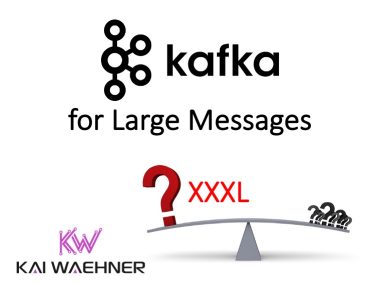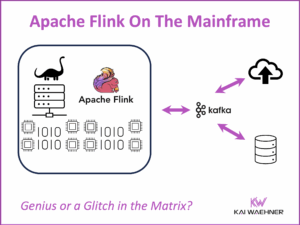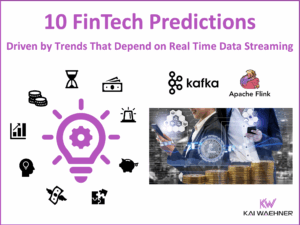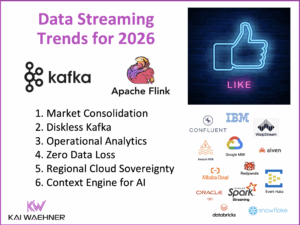Smart building and real estate generate enormous opportunities for governments and private enterprises in the smart city sector. This blog post explores how event streaming with Apache Kafka enables IoT analytics for cost savings, better consumer experience, and reduced risk. Examples include improved real estate maintenance and operations, smarter energy consumptions, optimized space usage, better employee experience, and better defense against cyber attacks.
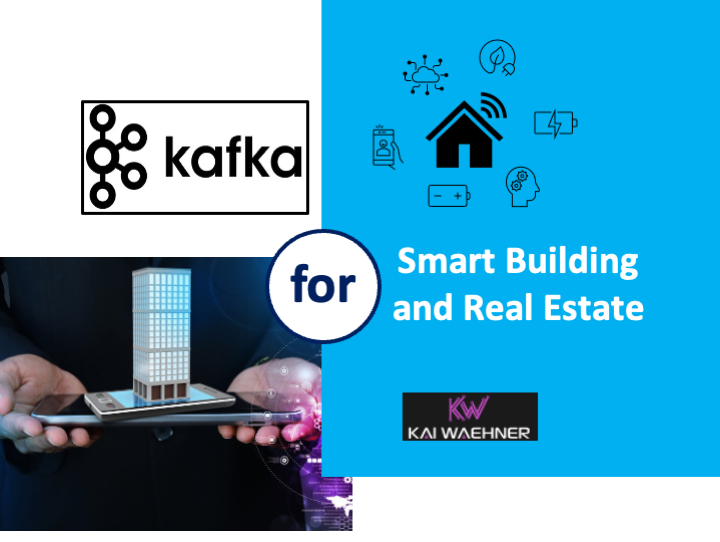
This post results from many customer conversations in this space, inspired by the article “5 Examples of IoT and Analytics at Work in Real Estate” from IT Business Edge.
Data in Motion for Smart City and Real Estate
A smart city is an urban area that uses different electronic Internet of Things (IoT) sensors to collect data and then use insights gained from that data to efficiently manage assets, resources, and services. Apache Kafka fits into the smart city architecture as the backbone for real-time streaming data integration and processing. Kafka is the de facto standard for Event Streaming.
The Government-owned Event Streaming platform from the Ohio Department of Transportation (ODOT) is a great example. Many smart city architectures are hybrid and require the combination of various technologies and communication paradigms like data streaming, fire-and-forget, and request-response. For instance, Kafka and MQTT enable the last-mile integration and data correlation of IoT data in real-time at scale.
Event Streaming is possible everywhere, in the traditional data center, the public cloud, or at the edge (outside a data center):
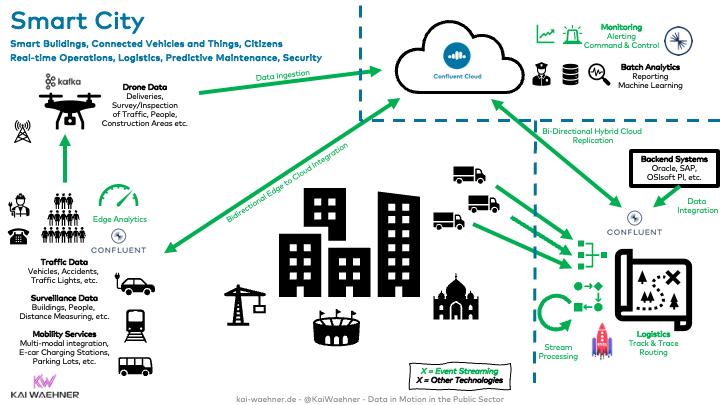
IoT Analytics Use Cases for Event Streaming with Smart Building and Real Estate
Real estate and buildings are crucial components of a smart city. This post explores various use cases for IoT analytics with event streaming to improve the citizen experience and reduce maintenance and operations costs using smart buildings.
The following sections explore these use cases:
- Optimized Space Usage within a Smart Building
- Predictive Analytics and Preventative Maintenance
- Smart Home Energy Consumption
- Real Estate Maintenance and Operations
- Employee Experience in a Smart Building
- Cybersecurity for Situational Awareness and Threat Intelligence
Optimized Space Usage within a Smart Building
Optimized space usage within buildings is crucial from an economic perspective. It enables to size space according to the need for rentals and to reduce building maintenance costs.
A few examples for data processing related to space optimization:
- Count people entering and leaving the premises with real-time alerting
- Track the walking behavior of visitors with continuous real-time aggregation of various data sources
- Optimized space usage during an event to optimize the customer experience; e.g., rearranging the chairs, tables, signs, etc. in a conference ballroom during the conference (as the next conference will have different people, requirements, and challenges)
- Plan future building, room, or location constructions with batch analytics on historical information
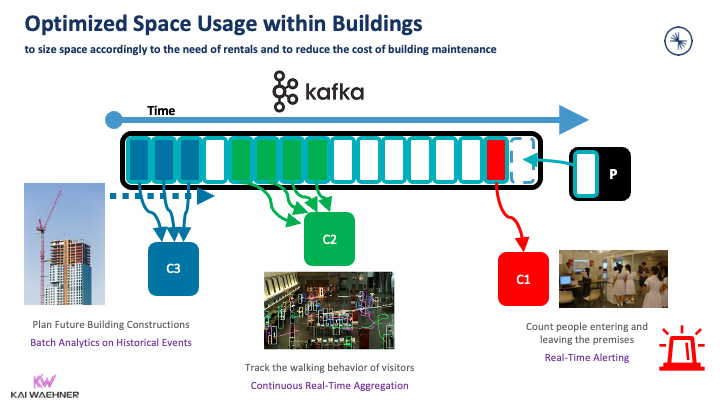
Predictive Analytics and Preventative Maintenance
Predictive analytics and preventative maintenance require real-time data processing. The monitoring of critical building assets and equipment such as air conditioning, elevators, and lighting prevents breakdowns and improves efficiency:
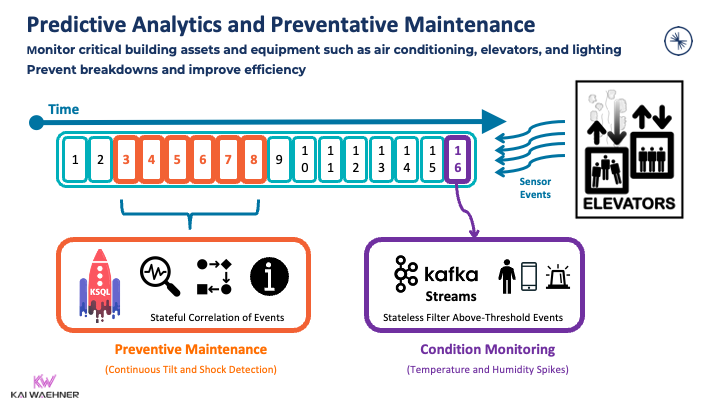
Continuous data processing is possible either in a stateless or stateful way. Here are two examples:
- Stateful preventive maintenance: Continuous tilt and shock detection calculating an average value
- Stateless condition monitoring: Temperature and humidity spikes with filter above-threshold events
My blog post about “Streaming Analytics for Condition Monitoring and Predictive Maintenance with Event Streaming and Apache Kafka” goes into more detail. A Kafka-native Digital Twin plays a key role in some IoT projects, too.
Smart Home Energy Consumption
The energy industry lives in a significant change. The increased use of digital tools supports the expected structural changes in the energy system to become green and less wasteful.
Smart energy consumption is a powerful and reasonable approach to reduce waste and save costs. Monitoring energy consumption in real-time enables the improvement of current business usage patterns:
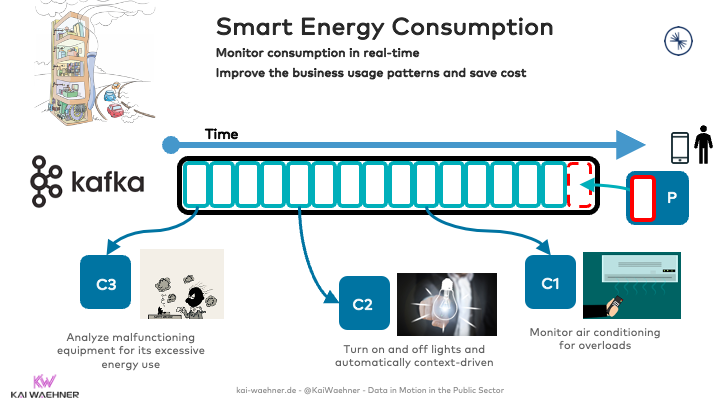
A few examples that require real-time data integration and data processing for sensor analytics:
- Analyze malfunctioning equipment for its excessive energy use
- Turn on and off lights and automatically context-driven instead of time-based configuration
- Monitor air conditioning for overloads
Real Estate Maintenance and Operations
The maintenance and operations of buildings and real estate require on-site and remote work. Hence, the public administration can perform administrative tasks and data analytics in a remote data center or cloud that aggregates information across locations. On the other side, some use cases require edge computing for real-time monitoring and analytics:
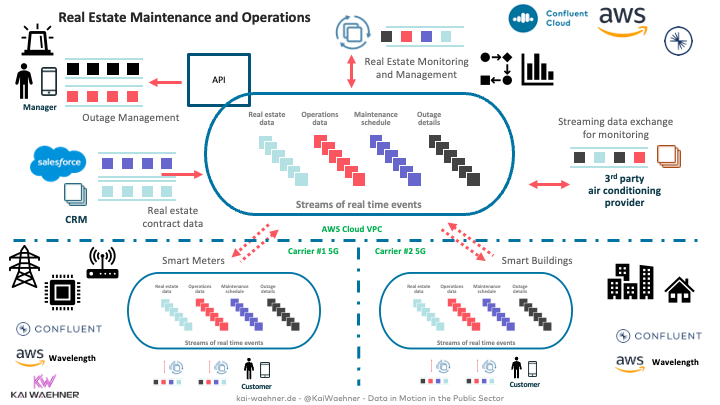
It always depends on the point of view. A manager for a smart building might work on-site while a manager monitors all facilities in a region. A global manager oversees many regional managers. Technology needs to support the need of all stakeholders. All of them can do a better job with real-time information and real-time applications.
Employee Experience in a Smart Building
Satisfied employees are crucial for a decent smart city and real estate strategy. Real-time applications can help here, too:
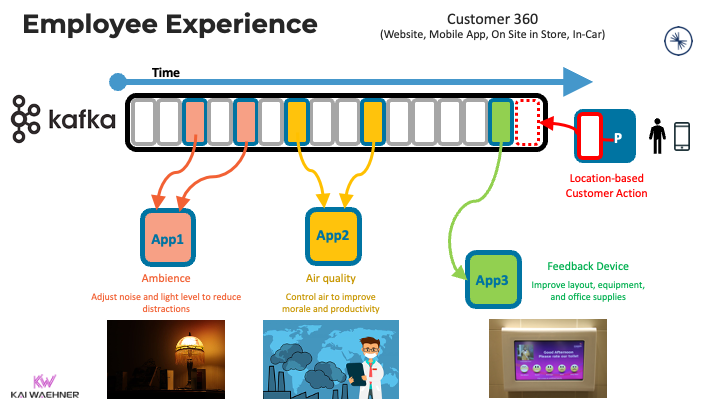
A few examples to improve the experience of the employees:
- Ambiance: Adjust noise and light level to reduce distractions
- Air quality: Control air to enhance morale and productivity
- Feedback Device: Improve layout, equipment, and office supplies
Cybersecurity for Situational Awareness and Threat Intelligence
Continuous data correlation became essential to defend against cyber attacks. Monitoring, alerting, and proactive actions are only possible if data integration and data correlation happen in real-time at scale reliably:
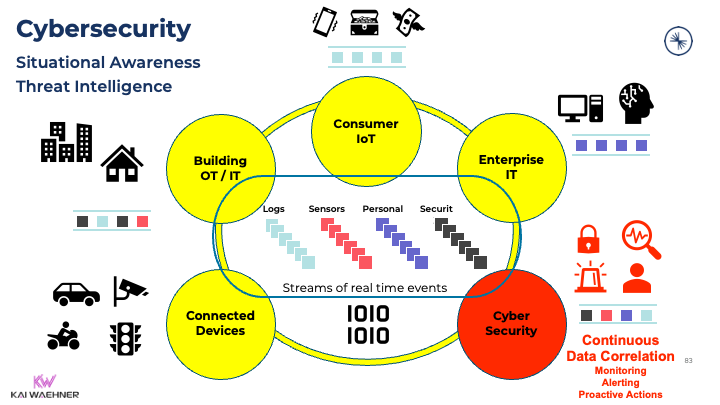
Plenty of use cases require event streaming as the scalable real-time backbone for cybersecurity. Kafka’s cybersecurity examples include situational awareness, threat intelligence, forensics, air-gapped and zero trust environments, and SIEM / SOAR modernization.
Smart City, Real Estate, and Smart Building require Real-Time IoT Analytics
Plenty of use cases exist to add business value to real estate and smart buildings. Data-driven correlation and analytics with data from any IoT interface in real-time is a game-changer to improve the consumer experience, save costs, and reduce risks.
Apache Kafka is the de-facto standard for event streaming. No matter if you are on-premise, in the public cloud, at the edge, or in a hybrid scenario, evaluate and compare the available Kafka offerings on the market to start your project the right way.
How do you optimize data usage in real estate and smart buildings? What technologies and architectures do you use? Let’s connect on LinkedIn and discuss it! Stay informed about new blog posts by subscribing to my newsletter.

